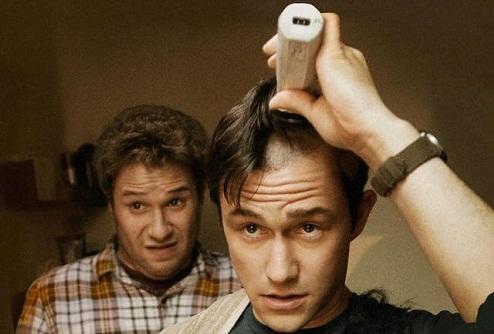To live.
"This stomach belongs to the protagonist of our story," says a narrator, who's pertaining to an x-ray image of a stomach obviously ripe with cancerous complications. And so begins "Ikiru", a meditative film of quiet power that tackles mortality and life's purpose yet also dips its fingers on issues concerning the cons of bureaucracy. The film's protagonist is Kanji Watanabe, an old man who seems to be no more alive than a dysfunctional machine.
In many ways, films like "Scent of a Woman" and "About Schmidt" derive from "Ikiru's" main emotional drive, which is as timeless as it is life-affirming. As what the film suggests, maybe it is only in the face of death and mortal desperation will we muster change and find true significance; indeed, life is brief. In the words of the narrator in "Fight Club": "This is your life, and it's ending one minute at a time".
Takashi Shimura, who has previously played the woodcutter in "Rashomon" and who will later play, after this film, the noble Kambei in "Seven Samurai", plays Watanabe, a bureaucrat who, for the longest time, has led an uneventful life drained of all meaning or worth. Making his living by stamping insignificant papers for approval, he is as mechanized and emotionless as he can be. But in one ill-fated day, he is diagnosed with stomach cancer. According to the doctor, he has around six months to live.
Devastated, Watanabe has never felt more strangely detached from the land of the living. His already hunched posture even becoming more contorted and his already fragmented articulation of words becoming even more so, Watanabe, as maybe what Kurosawa has intended, is the defining image of a modern man who has nothing to say about his life other than the painful fact that he has merely 'lived'.
Going home, Watanabe then pitifully tries to tell his son about his terminal illness but is discouraged by the latter's coldness. Finding no sense of belongingness either in his own home (with his son being mainly concerned not with his father's well-being but with his pension) or in his work, he suddenly had this craving to just lash out. Guided by a struggling novelist, Watanabe then tries to navigate the busy, booze-laden nightlife of '50s Japan to find out whether or not it can make up for his final days. As it turns out, it does not.
After his bar-hopping misfire, he then gets closer to a young woman named Toyo, an office subordinate of his who has recently tendered her resignation in Watanabe's office in favor of working in a toy factory, and whose exuberant and pure love for life leaves Watanabe in utter awe and in disgruntled fascination.
Miki Odagiri, who plays Toyo, has this distinct kind of energy that finely balances out Takashi Shimura's seemingly stagnant and doomed presence. By often framing Shimura's Watanabe, hunched, blank-eyed and ever-brooding, in the foreground and Odagiri's Toyo in the not-so-distant background, Kurosawa was constantly able to highlight the two characters' contrasting traits, behaviors and overall existence within the spatial landscapes of the film.
"…In other words, why are you so incredibly alive?" Watanabe blurts out to Toyo, who innocently mistakes his desperate need to understand his own existence as romantic advances. Toyo answered him that all she does is work and eat. She then gets a toy rabbit from her bag, one of the many products being made in the toy factory where she's employed; "Making them (the toy rabbits), I feel like I'm playing with every baby in Japan," Kimura then said.
Seemingly refreshed from Toyo's all-too-naïve yet honest response, Watanabe then sets out to do something that may hopefully make him matter. In a stunning turn of events, Watanabe transforms from an old nobody to a defiant spirit reminiscent of Jimmy Stewart's Mr. Smith determined to will through the lethargic incompetency of the city hall officials so that he can convince them to turn a mosquito-laden cesspool into a children's park.
Much like "Rashomon", we then get to see another epistemological discourse on Kurosawa's part, this time not about the truth (or the lack thereof) behind a mysterious murder but about the legacy of a man who everybody never expected to have left one. And by piecing together some fragmentary moments in Watanabe's life as witnessed by his co-workers, from his brave persistence to stand up for the children's park to his starry-eyed admiration of the sunset, we then finally arrive at what Watanabe is looking for all his life: meaning and self-worth.
"Ikiru", which literally means "To Live", is a an affecting film that explores man's search for existential meaning not through philosophically sophisticated means that may alienate viewers but realistically through an old man's eyes who just want to be at peace with those around him and, more importantly, with himself. Despite of "Ikiru's" apparent and sometimes much too overwhelming commentary on political bureaucracy, I'd rather remember it as an honest and reflective film about mortality and the often undermined beauty of life; simple as that. This then reminds me of a quote by Monty Python's Michael Palin: "Don't talk about living, just live".
FINAL RATING





